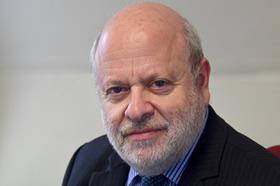Just before Christmas, as the Spanish EU presidency was winding down, the three EU institutions (parliament, Commission and council) came to an agreement on a range of important measures in what is known as the trilogue format. Among those was a directive to protect the environment and human rights, known as the Corporate Sustainability Due Diligence Directive (CSDDD).

We may not care any longer about EU directives, but this one raises very serious issues for the legal profession, not only for those of our law firms undertaking work for EU companies or in the EU, but in general, since the CSDDD shows a direction of travel world-wide which all law firms need to take seriously now, before our core values are further compromised.
The key words for us are ‘due diligence’ – and the key concern is what happens when corporate due diligence by big companies is turned towards us as service providers, when we are considered part of the company’s business chain of activities.
There are international institutions of which we are members which have established guidelines in the same field: the UN’s Guiding Principles on Business and Human Rights (UNGPs) and the OECD’s Guidelines for Multinational Enterprises on Responsible Business Conduct (updated a few months ago). Both are cited in the recitals to the CSDDD.
The OECD’s guidelines have a provision that ‘Enterprises should … Seek to prevent or mitigate an adverse impact where they have not contributed to that impact, when the impact is nevertheless directly linked to their operations, products or services by a business relationship’. If translated to lawyers, that presumably means that a company should make it its business to seek to prevent or mitigate an adverse impact caused by a law firm which provides services to it - through work the law firm does for other clients? Alarm bells should ring.
There is no final published text on the trilogue agreement on the CSDD. The press release issued by the European Council confirms that it contains rules on obligations for large companies about actual and potential adverse impacts on the environment and human rights for their business chain of activities, covering both upstream business partners and partially downstream activities, such as distribution or recycling. As a last resort, companies that identify adverse impacts on environment or human rights by some of their business partners will have to end those business relationships when the impacts cannot be prevented or ended.
Since the final text is not known, and since the concepts are complex and many, I will dwell only on the general principles related to a company’s business chain of activities. Only large companies will be subject to these rules, with more than 500 employees and over €150 million net worldwide turnover, if an EU company. Effectively, if lawyers are deemed part of the business chain of such a company for the purposes of the directive, these large companies will have to:
- take appropriate measures to identify actual and potential adverse human rights impacts and adverse environmental impacts of these law firms;
- take appropriate measures to prevent, or where prevention is not possible, adequately mitigate potential adverse human rights impacts and adverse environmental impacts that have been, or should have been, identified regarding these law firms;
- seek contractual assurances from the law firms that they will ensure compliance with the company’s code of conduct and prevention action plan, accompanied by appropriate measures to verify compliance;
- carry out periodic assessments to monitor the effectiveness of the identification, prevention, mitigation, bringing to an end and minimisation of the extent of human rights and environmental adverse impacts, based, where appropriate, on qualitative and quantitative indicators at least every 12 months.
Every lawyer will immediately see what is wrong with this in terms of a lawyer’s professional duties. A law firm has a very small environmental and human rights impact in terms of its own business, but the impacts of its clients’ activities are a different matter. Will the large company have to find out whether the law firms’ other clients are impacting the environment and human rights? The law firm will not be able to disclose this information because it will breach confidentiality. Where does that lead a law firm’s ability to provide legal services to a large company?
Many law firms already consider the environmental and human rights impacts of their clients in terms of business acceptance and their own values. That is one thing. Disclosing client information on this aspect to third parties is another.
Intra-EU negotiations are continuing, as the final wording continues to be hammered out. Maybe the efforts of some to exclude lawyers from the provisions relating to the business chain will be successful.
But such legislation is being implemented in many countries, and is always being ratcheted tighter – if not this year, then next.
We lawyers must be aware that due diligence related to law firms in terms of other clients’ activities cannot be included in such legislation, or a core value will have been rendered worthless. The only other option seems to be that no law firm is able to provide legal services to a company caught by such obligations.
Jonathan Goldsmith is Law Society Council member for EU & International, chair of the Law Society’s Policy & Regulatory Affairs Committee and a member of its board. All views expressed are personal and are not made in his capacity as a Law Society Council member, nor on behalf of the Law Society
This article is now closed for comment.































5 Readers' comments